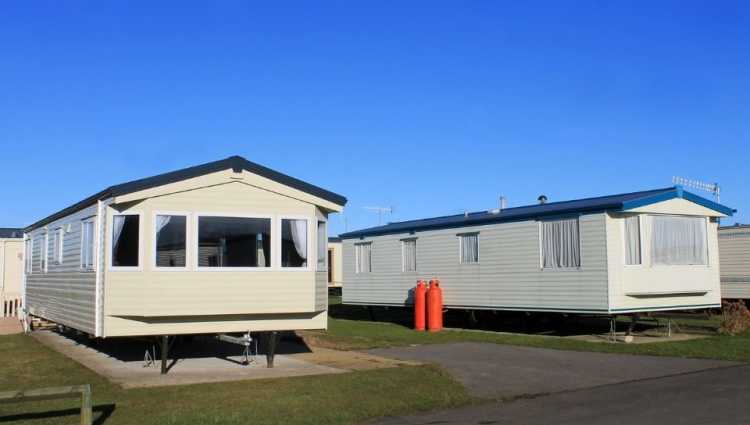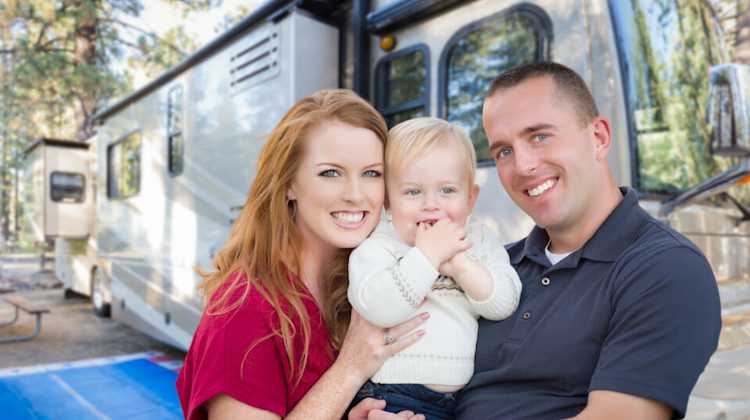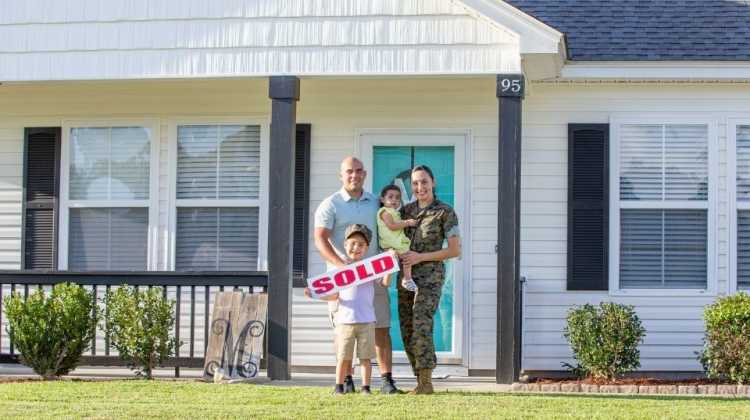Buying a Mobile Home? Here's What You Should Know
by Becca Stewart - April 7th, 2022

If you're having trouble finding a place to live this PCS season, you are not alone. Low inventory, high inflation, and a competitive housing market have made it difficult for many military families to buy homes. If you're tired of the bidding wars and the uncertain housing market, could buying a mobile home be the answer?
Finding the right home and getting your offer accepted has become difficult in this housing market, especially for first-time homebuyers. Military families who don't want to live on base (or face a months-long base housing waitlist) are finding other alternatives. Some choose full-time RV living. Others decide to buy mobile or manufactured homes. But are mobile homes a good investment?
Mobile home vs. manufactured home: What is the difference?
What's the difference between a mobile home vs. a manufactured home? Essentially, they are the same thing. Any home that is manufactured off-site and moved to a specific location, be it land or an established lot, is known as a manufactured home. The term "mobile home" typically refers to a structure built before 1976, when the U.S. Department of Housing and Urban Development (HUD) strengthened its building codes for these houses. But these two terms can be used interchangeably.
When buying a mobile home, you can either purchase a used mobile home or buy a newly constructed structure, which will be delivered and assembled at your desired location. You can rent a lot in a mobile home park or purchase a plot of land and place your mobile home on that property.
When renting a lot, you do not own the land under your mobile home; you only own the structure itself. You will pay a "lot rent" to the park owners in addition to the loan payment for the mobile home.
Pros and cons of mobile homes
There are advantages and disadvantages to buying a mobile home. Before deciding to go this route, it's important to understand all aspects of mobile homeownership.
Pros of owning a mobile home
1. Affordability
Perhaps the most significant advantage of buying a mobile home is the cost. With home prices skyrocketing in many parts of the country, manufactured homes remain affordable. It's not uncommon to find brand-new manufactured homes for under $80,000. Used structures are even less.
As an added bonus, mobile homes fall under a different tax category than traditional homes, meaning you won't owe nearly as much in property taxes each year.
2. Easy maintenance
If you rent a lot in a mobile home community, you won't have to worry about lawn care and other maintenance costs. The park typically covers all maintenance in your monthly lot rent. Many parks include utilities like water, sewer, and trash in the lot rent, too.
3. Location flexibility
Mobile homes are – you guessed it – mobile. Don't like the current location? You can hire a contractor to move it somewhere else. It's also possible to live in a mobile home park for a while, buy a piece of land, and then move the structure to that lot.
Pro-tip: Want to find out which neighborhoods are the best in your new location? Check out our free Community Insights, full of reviews and tips from military families just like yours.
4. Quick construction and delivery
Manufactured homes have a quick turnaround. Whereas you could be waiting for several months for a traditional new build, you could be moved in to a brand-new mobile home in a matter of weeks. For military families, this timeline is a major benefit of buying a mobile home.
5. Strict quality control
The HUD guidelines for manufactured homes have undergone several changes over the years. Today, builders face strict quality control standards, often making mobile homes more reliable and problem-free than "sticks and bricks" construction.
Cons of owning a mobile home
1. Depreciation
Perhaps the number one downside to owning a mobile home is the depreciation. Much like a car or RV, a manufactured home loses value almost instantly. It's unlikely you will recoup the cost of purchasing a mobile home as they often decrease in value substantially in a short period of time.
2. Lot rents
As mentioned above, unless you purchase a plot of land, you will probably end up placing your mobile home on a rented lot in a mobile home park. Those rents can increase over time, sometimes by double-digit percentages. Moving to a new location is possible, but it's costly. Therefore, if you own a mobile home and you're renting a lot, know that your monthly rent is at the landlord's discretion.
3. Difficult resale
Used trailers are difficult to offload, especially in a mobile home park that charges high lot rents. Since new manufactured homes are so affordable, many buyers choose that option. And just like used cars, mobile homes lose value over time. It's not impossible to sell a mobile home, but don't expect to gain back what you paid for it.
4. Financing challenges
A mobile home is considered "personal property," like a car or other vehicle, and not "real property," like a traditional house. That said, financing a mobile home gets a bit tricky. Many mortgage lenders do not issue loans for mobile homes. Even when you do find a lender, you can expect to pay a higher interest rate and have a shorter repayment term than you would with a traditional mortgage.
If you have questions about your financing options, contact one of our vetted lenders, who can help you navigate the process.
5. Stigma
Finally, even during the "tiny home" and RV living boom in popularity, mobile homes get a bad rap. The stigma surrounding "trailer parks" is often, well, less than positive. Today's mobile home communities often feature family-friendly amenities, community activities, and well-kept open spaces. But you will inevitably encounter those who stigmatize living in a mobile home.
Buying a mobile home: is it a good investment?
In a traditional sense, buying a mobile home is not a good investment. You typically don't own the land underneath the structure. The home decreases in value over time (as opposed to traditional houses that usually gain value). And reselling a mobile home can be extraordinarily difficult.
But military families struggling to find a home in this competitive market might see a mobile home as a good compromise. Sure, you might not gain equity like you would with a traditional single-family home. However, you also won't be throwing your money away on rent every month. When you PCS again, you will at least recoup some of the value of your mobile home, even if you don't break even.
Plus, the quick turnaround means you can have a new, never-lived-in home delivered to your desired location quickly. If you wait for a traditional new construction home, you could be waiting many months as builders continue to fall behind schedule.
Buying a mobile home isn't a wise investment in a strict real estate sense. But is it the right option for your military family? That's for you to decide.
Ready to buy? Let PCSgrades help you find a military-friendly real estate professional!
Buying a mobile home can be tricky, especially when it comes to loans. Not all mortgage lenders will provide a loan for a mobile or manufactured home. Likewise, each state has specific requirements for real estate agents regarding mobile home sales. Click the links to find reputable and experienced lenders and real estate agents who can help you understand your options.
Before you decide where to place your mobile home, check out our extensive database of area guides and reviews, written by military families just like yours. Read reviews about on- and off-base housing options, neighborhoods, schools, moving companies, and more, all for FREE at PCSgrades.com.








